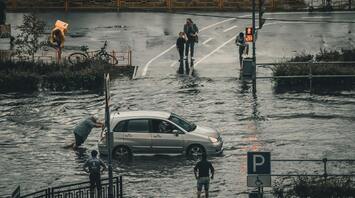Italian and French Regions Hit by Floods: Should You Rethink Your Travel Plans?

Amid the heavy rains sweeping across Europe, Italy and France are facing severe consequences from natural disasters. Red and orange weather alerts have been issued in Italy, signaling a high risk of dangerous conditions. The regions of Emilia-Romagna, Tuscany, and Sicily are already experiencing localized flooding, leading to widespread destruction and the death of one person. In central France, the situation is also critical, with severe floods causing homes to be destroyed and power outages reported.
Italy: Emilia-Romagna and Other Affected Regions
Emilia-Romagna has become the epicenter of the weather crisis, where one person tragically lost their life after a car was swept away by a flood in Panoro, near Bologna. Tuscany and Sicily are also suffering: the Elsa and Salo rivers have burst their banks, flooding nearby areas. Local residents have been strongly advised to avoid non-essential travel, as the situation remains dangerous and unpredictable. Weather warnings are expected to stay in place until at least Tuesday, which means that tourists planning trips during this time should reconsider or proceed with extreme caution.
France: Flood Aftermath
While Italy struggles with the aftermath of flooding, central regions of France are also reeling from heavy rains. Thousands of homes have been destroyed, and many residents have returned to find their properties in ruins. French firefighters and rescue teams have already carried out approximately 2,300 operations, working tirelessly to assist those affected. Authorities are warning that water levels could continue to rise in the coming days, posing potential risks for those planning to travel to these areas.
Traveling in Uncertain Weather: Advice for Tourists
Given the widespread flooding in Italy and France, tourists are urged to closely monitor weather forecasts and avoid traveling to regions at risk. If you have plans to visit Italy or France in the coming days, it is wise to assess the situation and take necessary precautions. Consider revising your itinerary or postponing visits to the affected areas if possible. It's important to remember that in emergency situations, transport links may be disrupted, and being in disaster zones can pose serious risks to your safety and health.



















